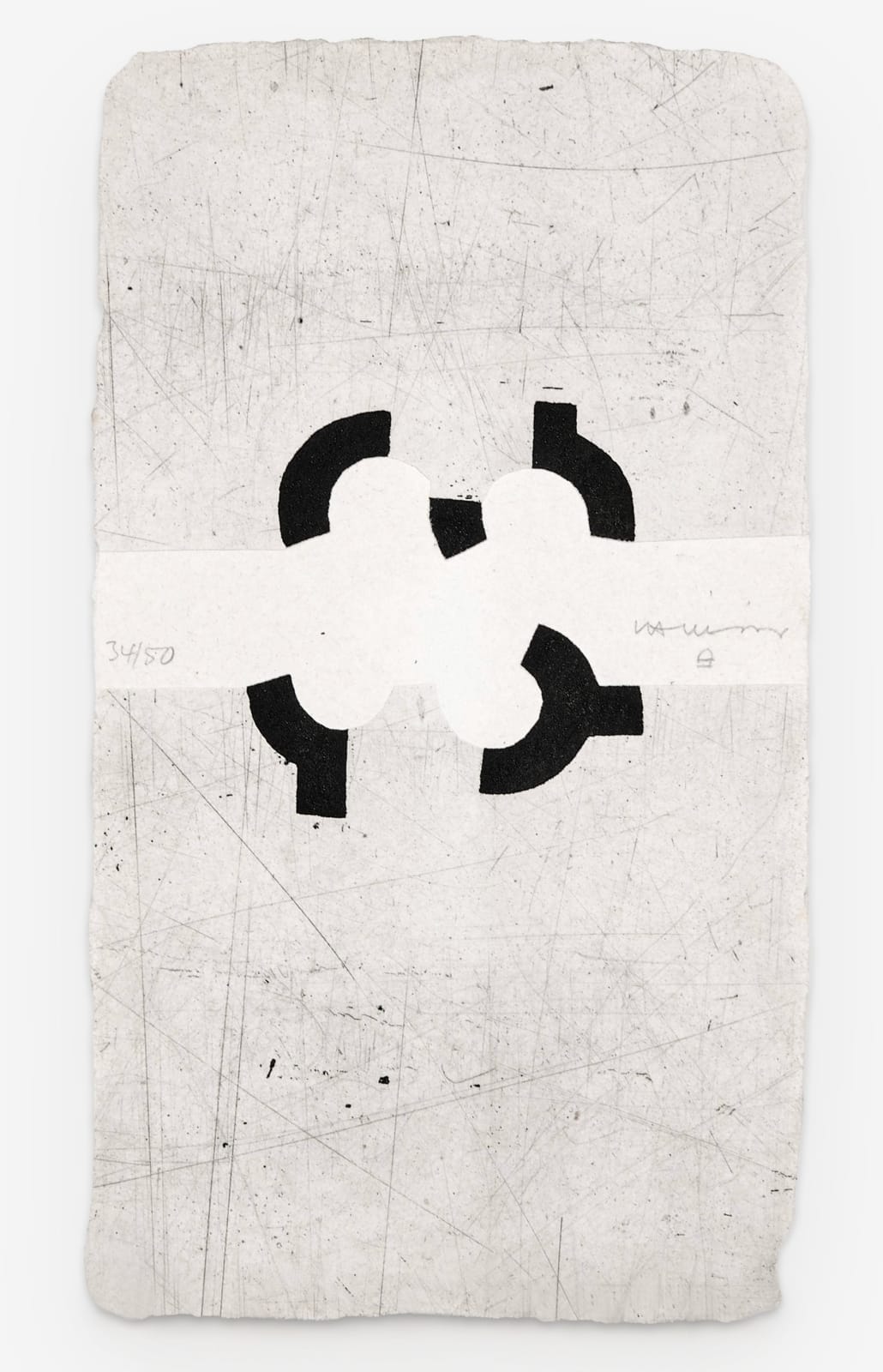Eduardo Chillida
Chillida's fascination with light extends throughout his artistic oeuvre, where light serves as both a visual element and a metaphorical concept. In his sculptures, Chillida often worked with heavy materials like iron and steel, creating forms that engaged with the surrounding light and space. These sculptural works, much like 'Argi III,' are not just about the solid forms but also about the voids and spaces around them. The use of light in 'Argi III' mirrors this approach; the white areas are as significant as the black shapes, creating a dynamic interplay that invites contemplation. Chillida's exploration of light is not merely physical but also philosophical, questioning how light defines and transforms space and form.
'Argi III' showcases Chillida's technical mastery in combining etching and aquatint with relief printing. The technique allows for a range of tonal variations and textural nuances, particularly evident on the highly textured Segundo Santos paper. The paper itself plays a crucial role in the artwork, its rough, handmade quality adding depth and dimension. The relief technique creates subtle elevations, casting gentle shadows that enhance the tactile experience of the piece. These technical aspects, combined with Chillida's minimalist yet profound use of form and light, make 'Argi III' a testament to his ability to blend the physical and the metaphysical, creating art that is both visually striking and poetically evocative. Through "Argi III," Chillida invites the viewer to engage in a meditative experience, contemplating the essence of light and the delicate balance between presence and absence.
This artwork is signed and numbered in pencil.
Published by Galerie Lelong, Zürich, and printed at Taller Hatz, San Sebastián.
Provenance
Galerie Lelong, ZürichPrivate collection, United States




